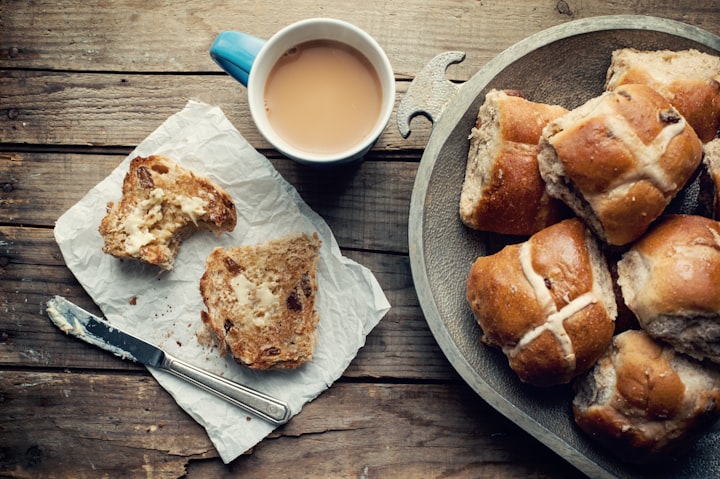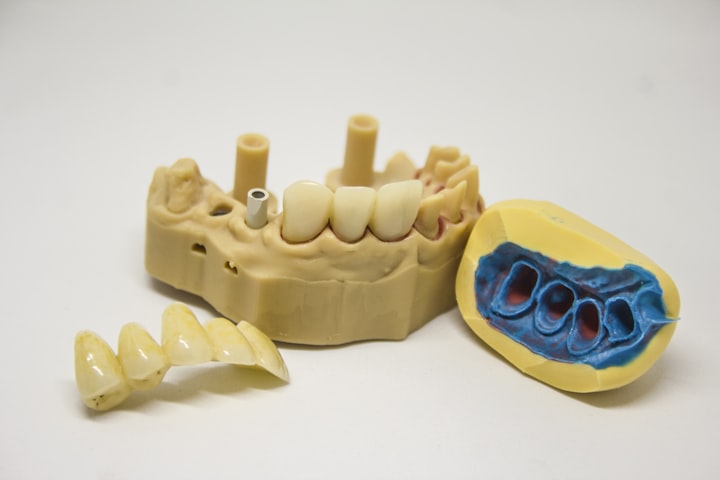Are You Taking Tea/Coffee After Meals?
Healthy lifestyle alert — how your tea habits affect your wellbeing after meals.

Are you a tea or coffee lover like me? Having a cup of tea/coffee is normal to reduce your fatigue, but do you know how harmful it could be to your health?
Here I am to tell you some facts. After reading that, you would be amazed to know how much your health is decreasing.
I always used to have a cup of tea after a meal; it was almost three years. One day, I got severe pain in my legs and disturbance in getting sleep (insomnia), which induced anxiety and restlessness. When I got my routine checkups, I had too low serum ferritin, the primary precursor of iron.
I was taking all sources of natural iron in my diet, but still, iron was too low. Then, upon some research and a doctor cross-questioning about my eating habits, I clarified that the tea absorbed all the iron in my meal and made it unavailable for my body. Now, I am trying to leave this addiction, but it's proving an uphill task for me to leave this bad habit.
At least now, I am trying to drink it after 30 minutes, starting from a 10-minute break, and it also has a good effect on my digestion. I know many of you also are indulged in this bad habit. I will share some scientific evidence based on research about having coffee directly after your primary food.
Side effects of Tannin present in tea
Tannin affects the absorption of several minerals, including iron, zinc, and calcium. This can cause a mineral deficiency, leading to several health problems, including muscle spasms and indigestion, and can damage the lining of the stomach, causing ulceration.
With its continuous use, you may become anemic over time, as your body lacks essential minerals for daily routine functions. Tanning can also make some people constipated.
Side effects of Caffeine present in tea
One other ingredient in tea is caffeine. Generally, it is said that our excessive caffeine intake can lead to insomnia. Moreover, it could raise blood pressure and heart rate, particularly if taken with an empty stomach.
Considering everything - pros and cons - it is best to avoid drinking tea along with and just after taking the meals. It is safe to take tea at least 30 minutes to one hour after lunch, breakfast, or any meal to absorb the primary food nutrients into the body.
A better alternative
Instead of tea and coffee, after a meal, you can have green tea. Green tea proves to be a catalyst when it is taken right after a meal. A 2017 research paper demonstrates that green tea positively affects our mental well-being, thinking, and mood. Another study in 2020 found a 64% reduction in the risk of cognitive impairment (problems with memory and thinking) among middle-aged and older individuals who regularly consumed green tea.
Now comes your turn. Have you ever had health problems as a result of tea? Let's share our experiences and help one other out. Contribute to the conversation; your knowledge may directly help- someone suffering from health issues.
Literature Cited
Mancini E, Beglinger C, Drewe J, Zanchi D, Lang UE, Borgwardt S. Green tea effects on cognition, mood and human brain function: A systematic review. Phytomedicine. 2017 Oct 15; 34:26–37.
Delimont, Nicole M., Mark D. Haub, and Brian L. Lindshield. "The impact of tannin consumption on iron bioavailability and status: A narrative review." Current developments in nutrition 1, no. 2 (2017): 1–12.
Milman, Nils Thorm. "Managing genetic hemochromatosis: an overview of dietary measures, which may reduce intestinal iron absorption in persons with iron overload." Gastroenterology Research 14, no. 2 (2021): 66–80.
Initially published this story by the author on medium.
About the Creator
Ameer Bibi
I love to read, write, and discuss life, health, fiction, and humour. If you write anything related to these topics, subscribe to me and share your story; I would love to read it and share my opinion. You can find me on Medium.
With Thanks
Reader insights
Outstanding
Excellent work. Looking forward to reading more!
Top insight
Eye opening
Niche topic & fresh perspectives






Comments (2)
Thank you for sharing this insightful information, Ameer Bibi. It is alarming to realize how something as common as drinking tea or coffee after meals can have such detrimental effects on our health, particularly in terms of nutrient absorption and overall well-being. Your personal experience highlights the importance of being mindful of our habits and their potential impacts on our health. It is commendable that you are making efforts to break this habit, even though it is proving to be challenging. Educating others about the side effects of consuming tea or coffee immediately after meals, particularly regarding the interference with mineral absorption due to tannins and the potential negative effects of caffeine, is crucial for promoting healthier habits. Making small adjustments, like waiting at least 30 minutes before drinking tea or coffee after a meal, can significantly improve digestion and nutrient absorption. Thank you for raising awareness about this issue and sharing your journey towards healthier habits.
It's very informative. Tea after a meal is dangerous for our health.